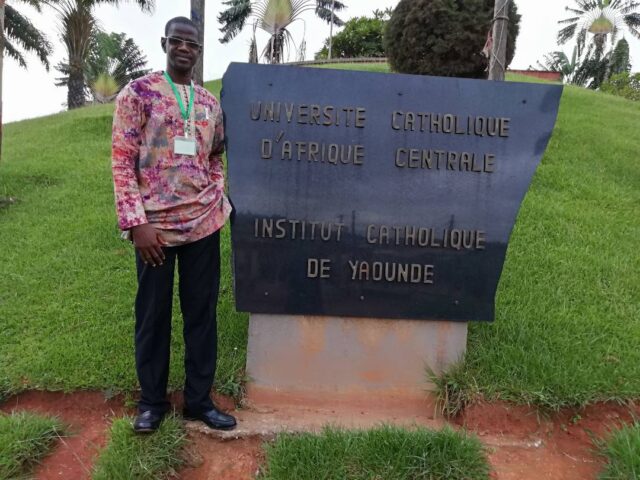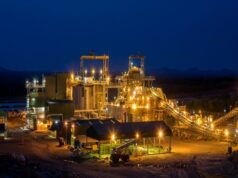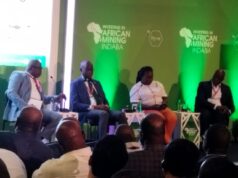Mahamadi Sebogo is a journalist and Head of the Economy and Finance Desk at the Burkinabe daily Sidwaya. From 17 to 28 July 2023, he attended the 12th session of the Summer University on the Governance of Extractive Industries in Yaoundé, organised by the Centre of Excellence for the Governance of Extractive Industries in Francophone Africa (CEGIEAF) of the Catholic University of Central Africa (UCAC), with the support of the Natural Resource Governance Institute (NRGI). In this interview, he looks back at what he has learnt from the course.
Mines Actu Burkina: Introduce yourself to our readers
Mahamadi Sebogo: I’m Mahamadi Sebogo, journalist, Head of the Economy and Finance Desk at the Burkinabe daily Sidwaya. I’m interested in subjects relating to the economy, finance, the environment and the climate. I’m also interested in the mining sector. Which is normal because Burkina Faso is a mining country, and one of the top five gold producers on the African continent.
You took part in the Summer University on the Governance of the Extractive Industries in French-speaking Africa. Tell us about the summer school in a few words.
These summer universities are a capacity-building programme for players in the governance of the extractive sector, particularly mining, oil and gas. They are organised by the Catholic University of Central Africa in Yaoundé through its Centre of Excellence for the Governance of Extractive Industries in French-speaking Africa (CEGIEAF), with the support of its long-standing partner, the Natural Resource Governance Institute (NRGI). Held annually in Yaoundé, Cameroon, this two-week training programme covers a range of topics relating to the issues and challenges of governance in the African extractive sector, including the outlook. The courses are given by experts from Europe and Africa. In a nutshell, these Summer Universities provide an ideal framework for building the capacity of those involved in governance of the African extractive sector, including civil society organisations, public mining and tax authorities, parliamentarians, journalists and development NGOs. They provide participants with a holistic view of the African extractive sector and the issues and challenges involved.
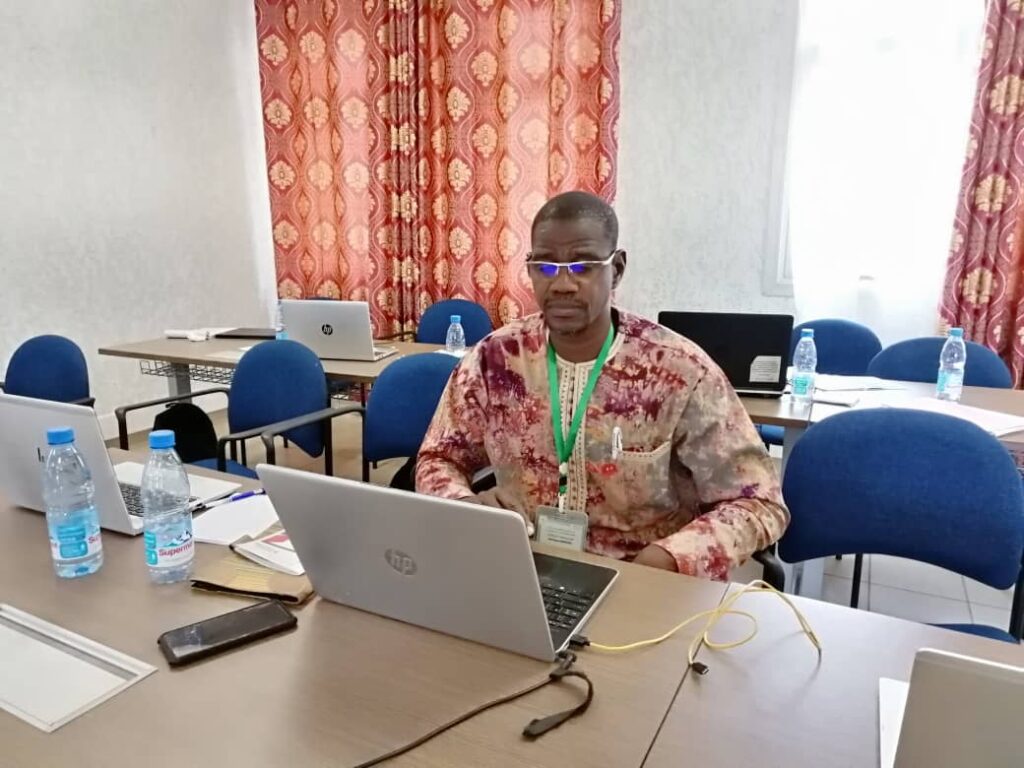
How to participate in the sessions?
Each year, participation in the Summer Schools on the Governance of Extractive Industries in French-speaking Africa is by call for applications. I submitted my application at the beginning of the year, thanks to Eliane Somé, a former beneficiary of the programme and former colleague at Sidwaya, who sent me the link to the call for applications for the programme, which is in its 12th session this year. My application was supported by a letter of recommendation from the Managing Director of Editions Sidwaya, Assétou Badoh.
I was initially shortlisted along with other candidates, which enabled us to take part in three months of distance learning preparatory work, at the end of which we were definitively admitted to take part in the current session, which runs from 17 to 28 July 2023 in Yaoundé, at the Catholic University of Central Africa. Out of 122 applications from several French-speaking African countries, 24 of us from 9 countries – Burkina Faso, Cameroon, Guinea, Mauritania, the Democratic Republic of Congo, Congo, Senegal, Chad and Togo – have been selected for this year’s programme.
This is not my first application. I applied for this programme in 2019. At the time, I didn’t have enough evidence to support my application, because you had to prove that you were interested in the mining sector. And I’d just started my young career as a journalist – I was barely a year into the job! So it wasn’t easy to come up with enough journalistic output to support my application, apart from a few articles reporting on workshops. This year, I submitted my application with more than twenty articles (reports, analyses, interviews, etc.) on the mining sector in Burkina Faso. And I think that all these journalistic productions and the letter of recommendation from my Managing Director weighed heavily in my application.
What is the content of the course?
As far as the content of the training is concerned, we were treated to a very rich and varied programme, covering all aspects of the mining industry: from the continent’s mining, oil and gas potential to exploitation, including the decision to extract, the management of mining contracts and revenues, the value chain of the extractive industry, and taking into account the interests of local communities. More specifically, the training modules covered the political economy of the extractive industries, the African Union’s African mining vision and its domestication, the legal framework for mining agreements, mining, oil and gas taxation, tax incentives, exemptions and loopholes, local content, monitoring legal and contractual obligations, gender and the extractive sector. The modules also cover the distribution of mining revenues, the issues and challenges of the mining transition for the extractive industries in Africa, the governance of transition minerals, the energy transition and the mobilisation of domestic resources, the natural resources governance index, the diagnosis of corruption in the extractive sector, international and regional transparency and good governance initiatives, illicit financial flows in the mining sector, etc.
These different modules are taught by experts with a perfect command of their subjects. They come from England, France, Burkina Faso, Cameroon, Guinea Conakry, the Democratic Republic of Congo (DRC) and Senegal.
In addition to the expert trainers, the participants are no novices in the sector. They are players on the ground in the governance of the African extractive sector. They shared experiences from their respective countries. And this has helped to enhance the quality of the training, the content of the exchanges and discussions during these weeks of training. As journalists, all these people (participants and trainers) make up an important network of experts for our journalistic needs for information and production on the governance of the extractive industries and the energy transition.
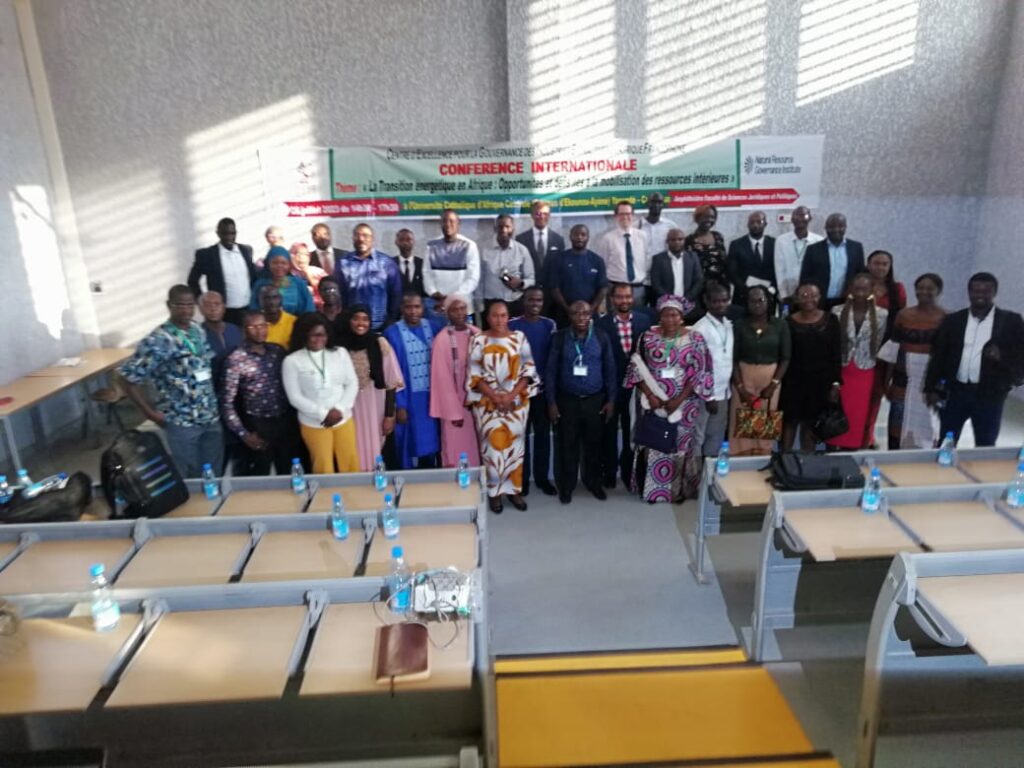
What aspects have you learnt the most about?
It has to be said that all the modules are equally important, and of vital interest to anyone interested in the governance of the extractive sector in Africa, especially us journalists. And we have concentrated on making the most of our knowledge throughout the various sessions. Having said that, mining taxation, the issues and challenges of the energy transition, the governance of transition minerals for Africa, local content, the management of mining contracts, illicit financial flows, transparency initiatives and the natural resources governance index were the topics that caught our attention the most.
How do you plan to put what you’ve learned into practice?
This training has considerably improved our knowledge of the mining sector. And this should now be reflected in our work in processing mining information and in our journalistic output on the mining sector in Burkina Faso and, by extension, in Africa. As journalists, we are going to reinvest the knowledge we have acquired through in-depth articles (reports, surveys, analyses, interviews) on the sector, with the aim of helping to make this sector a locative for sustainable development in our countries. In this way, we will be fulfilling the social mission of our profession, as well as satisfying those who had the bright idea of setting up this programme and those who are injecting their resources and energies into it.
Any last words?
My last word is a word of thanks to the Catholic University of Central Africa in Yaoundé, through its Centre of Excellence for the Governance of Extractive Industries in Francophone Africa (CEGIEAF) and its partner, the Natural Resource Governance Institute (NRGI), for initiating this valuable programme and for the opportunity they have given us to take part in this 12th session of the Summer University on the Governance of Extractive Industries in Francophone Africa. Admittedly, we don’t always have this culture of investing in continuing education, but it can happen that the will is there but the means to do so are lacking. If you are lucky enough to have institutions investing in your human capital, we can only thank UCAC and NRGI. It’s worth remembering that for this training, we are the beneficiaries of a full scholarship worth 3,500 dollars, or more than 2 million CFA francs, which covers the plane ticket, training fees, meals and accommodation. We would like to take this opportunity to express our deep and sincere gratitude. We would also like to thank our superiors, who understood the importance of this training and made it possible for us to be here for these two weeks. We pledge to work hard to deserve the trust placed in our humble selves!
Intevriew by PB
@Minesactubf



